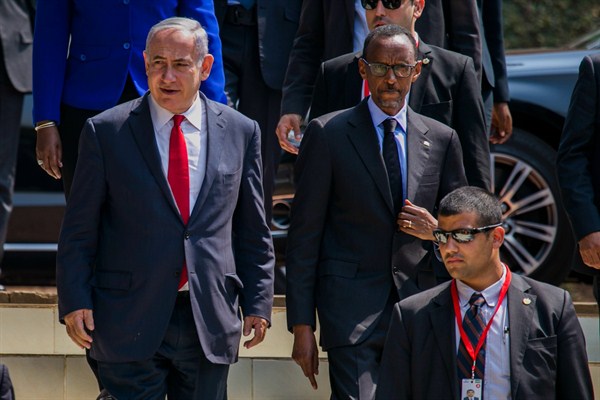On Nov. 28, the day Kenyan President Uhuru Kenyatta was sworn in for a second term, Israeli Prime Minister Benjamin Netanyahu told reporters that attending the event would give him an opportunity to reinforce Israel’s engagement with the continent. “Our intention is to deepen ties with Africa, also by forging links with countries that we do not have diplomatic relations with,” he said before boarding a flight to Nairobi. “I hope by the end of the day I will be able to announce the opening of a new Israeli embassy in an African country.”
Netanyahu got what he wanted. Though he skipped the actual inauguration ceremony, apparently out of safety concerns, he was able to meet with around 10 African heads of state and sit next to Kenyatta at a post-inauguration lunch. He then announced that the new embassy in question would be in Rwanda, and that direct commercial flights between Tel Aviv and Kigali, Rwanda’s capital, could be in the offing.
The news was consistent with a rapidly deepening bilateral relationship between Israel and Rwanda, one that provides a unique chance for Israel to address issues that have sullied its reputation in Africa. It also highlighted a concerted effort by Israel to expand its outreach on the continent as a whole—an effort that Netanyahu has framed as the reprisal of a diplomatic push begun more than half a century ago.

